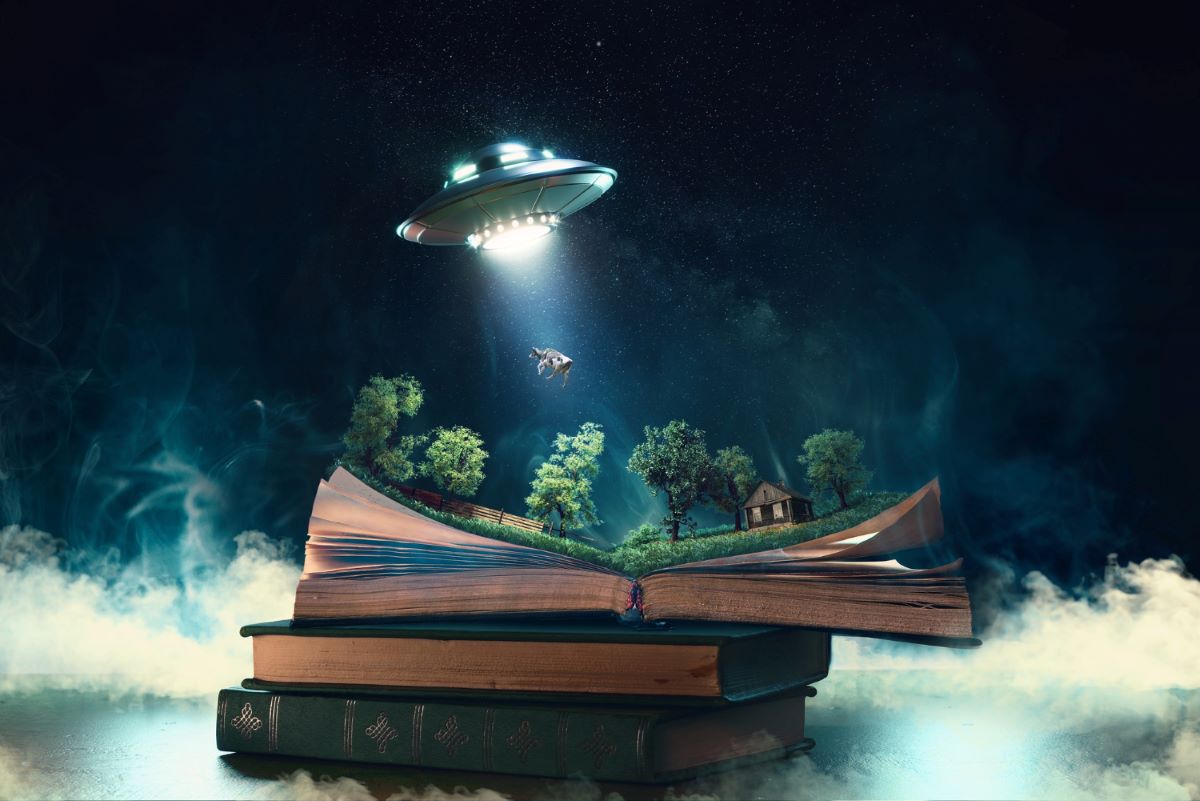Science fiction has long been a mirror reflecting humanity’s hopes, fears, and technological ambitions. Over the decades, the genre has evolved from cautionary dystopian tales to explorations of artificial intelligence and futuristic possibilities. From George Orwell’s 1984 to Isaac Asimov’s I, Robot, and now Stephen Bramer’s The Bonded, science fiction has transformed alongside society, constantly adapting to new scientific discoveries and philosophical questions.
Dystopian Warnings: The Birth of Modern Sci-Fi
In the mid-20th century, science fiction often served as a cautionary tale, warning readers about the dangers of authoritarian rule, mass surveillance, and societal control. One of the most influential works of this period is George Orwell’s 1984 (1949). This dystopian masterpiece introduced readers to Big Brother, thought police, and state-controlled reality, showcasing a future where technology is used for oppression rather than progress. Orwell’s work resonated deeply in an era marked by totalitarian regimes, Cold War paranoia, and the rise of mass media.
Similarly, Aldous Huxley’s Brave New World (1932) painted a future where humanity is controlled not through fear, but through pleasure and consumerism. Both novels served as warnings about the misuse of technology and political power, themes that remain relevant today.
This theme of groupthink vs. individual thought is expanded in The Bonded. In 1984, an external entity exerts control over individuals, stripping them of personal agency. In The Bonded, this idea takes on a literal dimension, each Bonded individual possesses two neural networks: their own original mind and a second, mutated network connected to the larger communal consciousness. While an individual’s original mind can receive input and send limited messages, the communal mind can override individual autonomy entirely, treating individual existence as expendable. This presents a modern take on Orwell’s concerns, showing a world where self-preservation is redefined as the survival of a collective mind over individuals.
The Rise of Artificial Intelligence and Robotics
As the 20th century progressed, science fiction moved from dystopian political warnings to philosophical debates on artificial intelligence (AI) and human identity. Few authors have influenced this shift more than Isaac Asimov, whose I, Robot (1950) introduced the famous Three Laws of Robotics, a set of ethical guidelines for AI.
Asimov’s stories explored the moral and ethical dilemmas of AI, presenting robots not as cold, mindless machines, but as entities with logic, emotions, and conflicts. His vision of AI was ahead of its time, foreshadowing modern discussions about AI ethics, automation, and machine learning.
A key theme in I, Robot is the contrast between rigid machine logic and human creativity, humans prevail because they possess inspiration and adaptability, qualities that robots lack. The Bonded presents a parallel conflict within human evolution itself. The cognitive mind of the Bonded demands extreme order to function across its many interconnected parts. Creativity and free thought introduce unpredictability, threatening chaos and collapse. However, human individuals, and particularly hybrids, retain greater creative potential, leading to an evolutionary shift where individuality and free thinking are re-emphasized. The hybrids ultimately preserve elements of the communal mind while restoring the value of individual existence, shaping a future where both aspects coexist.
Cyberpunk and the Digital Age
By the late 20th century, science fiction took a darker, more cybernetic turn with the rise of cyberpunk, a subgenre focusing on high-tech, low-life societies. William Gibson’s Neuromancer (1984) introduced the world to cyberspace before the internet became mainstream. Cyberpunk stories depict worlds where corporations wield more power than governments, AI evolves beyond human control, and virtual reality blends with real life.
This era of sci-fi directly influenced modern technology, inspiring tech entrepreneurs, programmers, and even the way we think about the internet today.
The Future of Science Fiction
As we move into the age of AI, quantum computing, and space exploration, science fiction continues to evolve. Today’s sci-fi, such as The Expanse and Westworld, tackles issues of space colonization, consciousness, and AI ethics, showing that the genre remains as thought-provoking as ever.

Final Thoughts
From Orwell’s dystopian nightmares to Asimov’s robotic dilemmas, science fiction has shaped and reflected humanity’s technological journey. Whether warning us about the dangers of surveillance or exploring AI’s potential, the genre remains a crucial lens for examining the future.
Looking for a modern sci-fi thriller that captures the best of these themes? Check out The Bonded by Stephen Bramer, a thrilling exploration of hidden societies, AI, and the evolution of human consciousness. Get your copy today!



